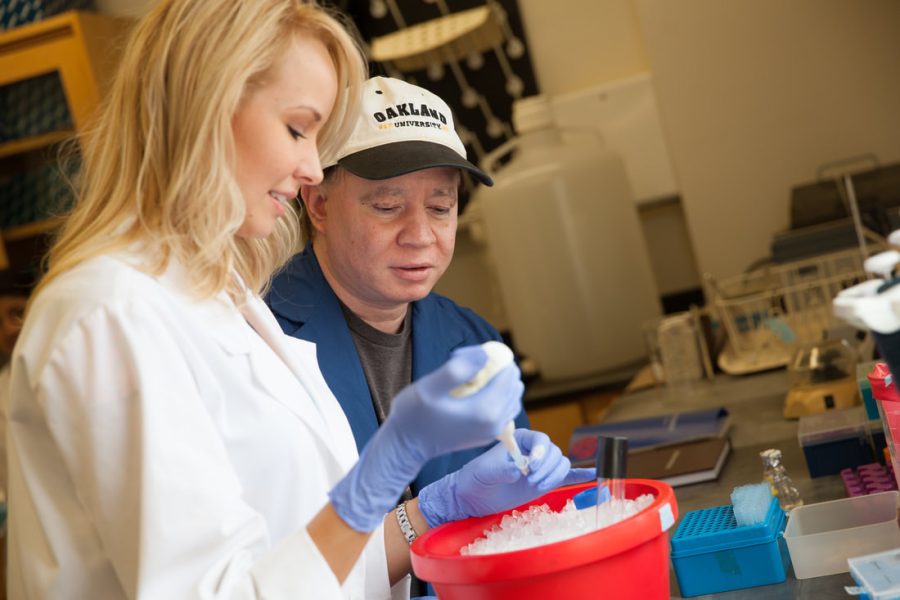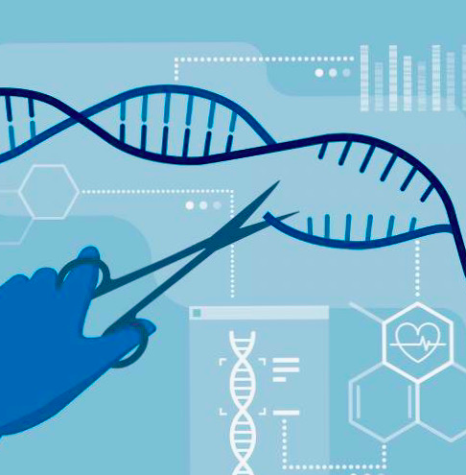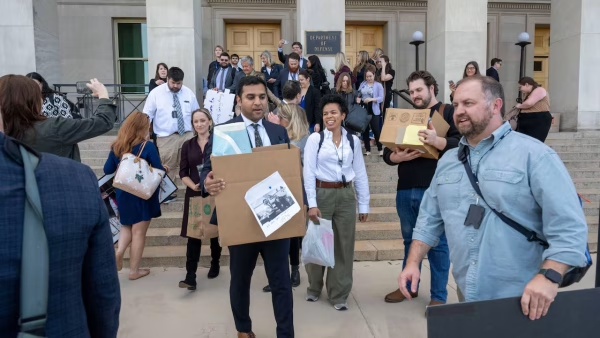‘From maize to medicine:’ Dr. Lal on plant genomics and bioinformatics
Dr. Shailesh Lal is a professor in the Department of Biological Sciences and serves as the chair of the Department of Bioengineering. In addition to teaching, he operates a laboratory focusing on plant genomics and bioinformatics.
“Initially I started studying what are called jumping genes, [or] transposable elements — but lately my funded research is on the molecular biology and genetic engineering of corn, which is one of the most important economic imported crop plants in the United States and in the world,” Lal said. “Even if you are non-vegetarian, you are dependent on corn because that is what they feed the livestock. Corn is also used for gasoline.”
Lal studies the genes involved in starch synthesis and what makes the kernel plump. One of the genes he studies is called RBM-48, an RNA binding protein. After destroying this gene, he saw that mutant plants produce wrinkled and shriveled corn kernels.
“During the course of studying this gene, we saw that mutant kernels proliferate like cancer,” Lal said. “We, as human beings, have an orthologous gene involved in development and proliferation which is related to cancer.”
He approached two other OU faculty members — Dr, Gerard Madlambayan, whose research focuses on cancer, and Dr. Randal Westrick, who studies blood and thrombosis — to dive deeper into the function of this gene. They have found connections to myelodysplastic syndrome (MDS), which can progress to the cancer acute myeloid leukemia (AML.)
“Using CRISPR-cas 9, we knocked out this master gene in humans and saw that it had the same function that it did in the corn,” Lal said. “It resulted in certain introns not being spliced and removed, which exposes these regions to cancer and developmental defects. The next step is working on this in mice models after seeing this in cancer cells.”
In addition to the biomedical implications that arise from working with corn, Lal is also interested in the prospect of ensuring that corn remains a secure food source even when facing the threats of war and climate change.
“As we look into the future, food security is going to be major,” Lal said. “We are trying to genetically engineer plants to be able to grow in drought conditions. Especially in countries with increasing populations, like India, where I am from, and China, there is a lot of interest in this research because they have to be able to feed the population.”
Lal encourages students interested in getting involved in any research lab to approach faculty during their sophomore or the beginning of their junior year, so that they can have the necessary time to effectively learn techniques before they apply them in experiments.
“Students working in my lab learn molecular biology techniques and critical thinking skills, and have presented at international and national conferences,” Lal said. “Getting laboratory experience can do wonders.”
Some of the innovative techniques include CRISPR-cas 9 and tissue culture. Another experiment that a student is a part of is growing E.coli cells in zero gravity to see if this causes mutations.
For anyone interested in Lal’s work or in getting more information about biology or bioengineering research involvement, stop by his office at 346 DH or email him at [email protected].












